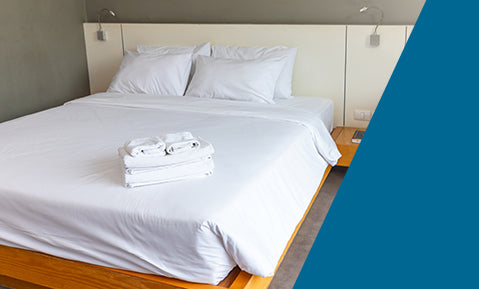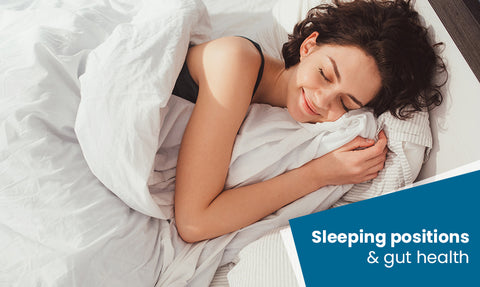
“The great thing about Ayurveda is that its treatments always yield side benefits, not side effects.”…..Shubhra Krishnan

What comes to your mind when I say ayurveda? Spa….costly herbal cosmetics…panchakarma….kerala…Goa? Well let me give you a brief introduction to ‘ayurveda’ today.
Ayurveda is the ’the knowledge of life’. It cherishes our innate nature. It tell us to ‘honour and love who we are’ not what others think ‘what we should be’ .
Ayurveda is an ancient system of Indian medicine which is now accepted worldwide. It has a (much advertised and now very popular) holistic approach ( now are you interested?) towards life and prescribes nature based medicines to various diseases.
History of Ayurveda

If our ancient wisdom fascinates you then you must be interested to know about the history of ayurveda. This traditional Indian science originated in the Vedic era. Well, I am sure you know about Vedas. In case you want me to remind you once more, Vedas are the oldest sacred texts that mark Hinduism. According to historians, Ayurveda belongs to ‘Atharvaveda’( the four vedas being: Yajurveda, Rig veda, Sam veda and Atharvaveda). However the mention of medicinal plants and diseases are also found in the ‘Rig veda’. The most ancient codified document of Ayurveda is the Charaka Samhita. Another codified document is Sushruta Samhita. The Charaka tradition descended through Atreya whereas the Sushruta tradition descended through Dhanvantari (The God of Hindu Medicine). If you are a fan of mythology you must recall ‘samudra manthan’. According to some beliefs, that’s when Lord Dhanvantari originated.
The sushruta school is basically dominated by surgery whereas Charaka Samhita focuses on internal medicine.
That was the history….. in short
Principles of Ayurveda
Now it gets serious from here..
According to Ayurveda, the whole universe is made up of five basic elements or ‘panchamahabhoota’: earth or ‘prithvi’ , fire or ‘teja’, water or ‘jala’, air or ‘vayu’ and space/ether or ‘aakash’.
The five elements give rise to three basic humors in the human body: the ‘tridoshas’; ‘kaphadosha’, ‘pitta dosha’ and ‘vatadosha’. Each principal dosha has five sub-doshas. The doshas together with the sub-doshas control the body’s basic physiological functions. A person’s body constitution or ‘prakriti’ is determined by the unique combinations of the tridoshas in varying amounts.
(pheww….)
Well…there is more….
There are seven main kinds of prakriti on the basis of different combinations of doshas. According to Ayurveda, people with balanced doshas are less prone to diseases compared to people with abnormal doshas. A major reason of illness is imbalanced doshas.
Ayurveda also believes that the body is made up of seven tissues or ‘saptdhatus’; sweat or ‘ sweda’, fat/connective tissue or ‘meda’, tissue fluids or ‘rasa’, blood or ‘rakta’, muscle or ‘mamsa’, bones or ‘asthi’, marrow or ‘majja’, semen or ‘shukra’ together with three waste products or ‘mala’, urine or ‘mutra’, faeces or ‘purisha’ and sweat or ‘swedha’.
The hindu scientists conducted deep studies on the mind and they grouped the various activities of mind in three categories: sattvik, rajasic andtamasik. The mind affects the body through these three attributes or trigunas.
Wow! Aren’t you already proud to be an Indian…. The land of such magnificient science!
Let us have a look at the cornerstones of Ayurveda, the tridoshas in brief. The tridoshas are made up of all the mahabhutas( five in number) but one is predominant.
- Vatadosha: it is composed of vayu (air) and akash( ether). This dosha is responsible for the removal of waste products from the body, maintaining electrolyte balance and cellular transport. The effect of vatadosha increases by dryness.
- Pitta dosha: it is composed of ap/jala (water) and agni( fire). This dosha is responsible for managing thirst and hunger, digestion, regulating body’s temperature, maintaining immunity and coordination of optic nerve ( anerve connecting the eye to the brain). Conditions that heat up the body aggravates pitta.
- Kaphadosha: it is composed of prithvi (earth) and jala/ap (water). This dosha controls the musculoskeletal (relating to muscles and bones) and nervous systems. It forms and maintains shape, flexibility and body mass. Kaphadosha increases by fatty and sweet foods.
(and specially for the students of biology….) The body’s metabolism (chemical process in the body that converts the food we eat into energy) is governed by pitta, catabolism (breaking down of complex molecules into simpler molecules which releases energy) by vata and anabolism (combining of simpler molecules to form complex molecules whichrequires energy) by kapha.
For optimum health, a balance should be made between the three doshas. Any imbalance between the doshas leads to disease or illness. The nature and type of illness depends on the dosha affected.
Ayurveda and sleep

Now coming to the topic…
Ayurveda states that sleep is necessary for spiritual, mental and physical rejuvenation. According to ayurveda, sleep is considered as one among the four natural and basic instincts; the other three being desire to eat, desire to drink and desire for sexual contact. Ayurveda also states that sleep or ‘nidra’ is among the three foundations required for a good health. The other two being food or ‘ahara’ and regulation of sexual energy or ‘bramhacharya’..
The mention of sleep and sleep disorders can be found in the texts of Ayurveda as early as 100 BC to 900 AD in Sushruta Samhita and 300AD-500AD in Charaka samhita( ….so this is now a new problem).
According to ayurveda, the doshas determine many basic functions of the body, including sleep. Ayurvedic texts state that increased kapha causes sleep and insomnia is caused by increase in pitta and vata. According to Charaka Samhita Sutrasthana, verse 12 of chapter 20, persons with prominent vatadosha wake up many times during the night and take naps in the daytime. Such people have poor quality of sleep and often suffer from insomnia. Furthermore, Charaka Samhita Sutrasthana, verse 15 of chapter 20 states that people with dominant pitta dosha have moderate sleep but the sleep is often disturbed due to dreams. The verse 18 of chapter 20 of Charaka Samhita Sutrasthana states that people with kaphadosha find it difficult to stay awake and easily fall asleep. This dosha is linked to heaviness, lubrication and moisture.
According to a survey conducted on 995 people in Northern India by Shirley Telles( and others) to determine if the doshas of Ayurveda can predict the quantity and quality of sleep, it was found that, high scores of vata are linked to taking longer periods for falling asleep and having a lesser feeling of rest after waking up in the morning whereas high scores of kapha can be linked to longer naps in the daytime.
It is also fascinating to note that, a sattvik person needs 4-6 hours of sleep, a rajasik person needs nearly 8 hours of sleep and a tamasik person requires 10-12 hours of sleep.
Effects of not sleeping at night or ‘Raatri Jaagran’ include:

- Weakness
- Constipation
- Lack of concentration
- Giddiness
- Hyperacidity
- Burning of hands, feet and eyes
Indications for not sleeping at night:
- Persons of kapha constitution and suffering from kaphajadisorders
- Person consuming a fat rich diet
- Obese people
The Ayurvedic clock
Well, another interesting thing in ayurveda……and… the science behind what grandma used to tell us
According to Ayurveda, the day is divided into six zones, four hours each. Each zone is dominated by one dosha
- 6AM-10AM – Kapha
- 10AM-2PM – Pitta
- 2PM - 6PM – Vata
- 6PM - 10PM – Kapha
- 10PM -2AM – Pitta
- 2AM- 6AM – Vata
According to this clock, the best wake up time is before sunrise and it is best to sleep before 10pm during the Kapha period as it induces dullness in a person’s body. Also, keeping a two hour gap (minimum) between dinner and going to sleep is important.
Types of Sleep according to Ayurveda
Yes ! your sleep has types too..
Generally sleep is of two types
- Svabhavika or natural sleep
- Asvabhavika or abnormal sleep
According to Maharshi Charaka, there are seven types of sleep caused by
- Tamas
- Vitiated kapha
- Agantuka ( has bad prognosis. Leads to imminent death)
- Mental exertion
- Physical exhaustion
- Physiological sleep ( sleep at night)
- As a complication of some other disease.
Acharya Sushruta described three types of sleep:
- Vaishnavi (natural sleep)
- Vaikariki (due to any disease)
- Tamasi (caused by mental darkness)
Five Ayurvedic practices to sleep better
- Stick to a constant sleep routine: Ayurveda emphasizes on the consistency in the sleep routine of a person. Go to bed and get up at the same time, all seven days a week
- Go to bed early: early bedtimes are encouraged by Ayurveda. It is based on the science that the early part of night is most restorative and restful. It is time of slow wave sleep which is important for physiological functioning and health of cells.
- Eating an early and light dinner: Ayurveda advices to eat lighter dinner at a minimum of two hours before going to bed. This will allow rest to the digestive system by reducing its activity and help to get a sound sleep
- Self massage: Ayurveda recommends to use ghee for massaging. The head, temples( area behind eye, between the ear and forehead) and feet are the key areas for massaging. A good massage will release body heat, ease stress, lower the blood pressure, soothe the body, calm the mind and open up blood vessels
- Pranayam, meditation and yoga: every dosha is affected by meditation. It relaxes and calms the body and mind. Breath awareness meditation is the simplest form of meditation where one focuses on the breath instead of the concerns of life. Meditation should be practiced regularlyat a specific time before sunrise and after sunset, at a fixed place. The science of healthy and better living is yoga: mental, physical, moral, spiritual and intellectual. It is now routinely advised for both mental and physical fitness.
Its time to stop ‘just reading’ and start following these rules no matter how many times you failed to meditate daily, sleep early or have a proper sleeping schedule.
Solutions to sleeping problems in older people according to Ayurveda

Sleeping problems increases as a person gets older. According to estimations , around 67% of the elderly population have atleast one complaint related to sleep. The various sleep disorders that affect older people are:
- Taking longer period to fall asleep
- Disturbed sleep or ‘khandit nidra’
- Insomnia or ‘anidra’
The factors responsible for the various sleep disorders in the elderly are:
- Improper lifestyle and diet- it aggravates vata which results in sleep disturbances
- Worries
- Suppressed emotions
- Anger
- Overexcitement
- Disturbed sleep patterns
- Ill health
This can be prevented by:
- Avoiding excess consumption of caffeinated drinks, smoking and alcohol
- Avoiding heavy meals before sleep at night
- Avoiding indigestible, spicy and incompatible food
- Avoiding exposure to blue light ( fromtv, mobiles, computer etc) till late night
Management of sleeping problems in older people includes:
- Foodsthat are advised: sugarcane juice, grapes, curd from buffalo milk, milk, non vegetarian, grapes etc
- Avoiding the causative factors.
- Bramhi, ashwagandha, jatamansi,jatiphal, mandukparni, khurasiniajvayan is helpful in sleep related problems
- Bramhivati, mahakalyaanakghrut, sarpagandhdivati and mamsyadikvath promotes peaceful sleep
- Panchkarma treatment
- Yoga poses like suryanamaskara, bhujangasana, tadasana, matsyasana, padnasana, pascimottanasana and shavasana
- Pranayama like anulomaviloma, bhramri, shitali and ujjaini
- Meditation
- Practising yognidra, a deep relaxation technique
Taking warm buffalo milk before bedtime also helps. Massaging of head and feet is also a good practice to do before sleep.
Sleeping issues are a major concern now-a-days. But it is possible to face it through a holistic approach. However , before adopting any method to combat sleeping problems, it is advised to consult a certified ayurvedic practitioner.












